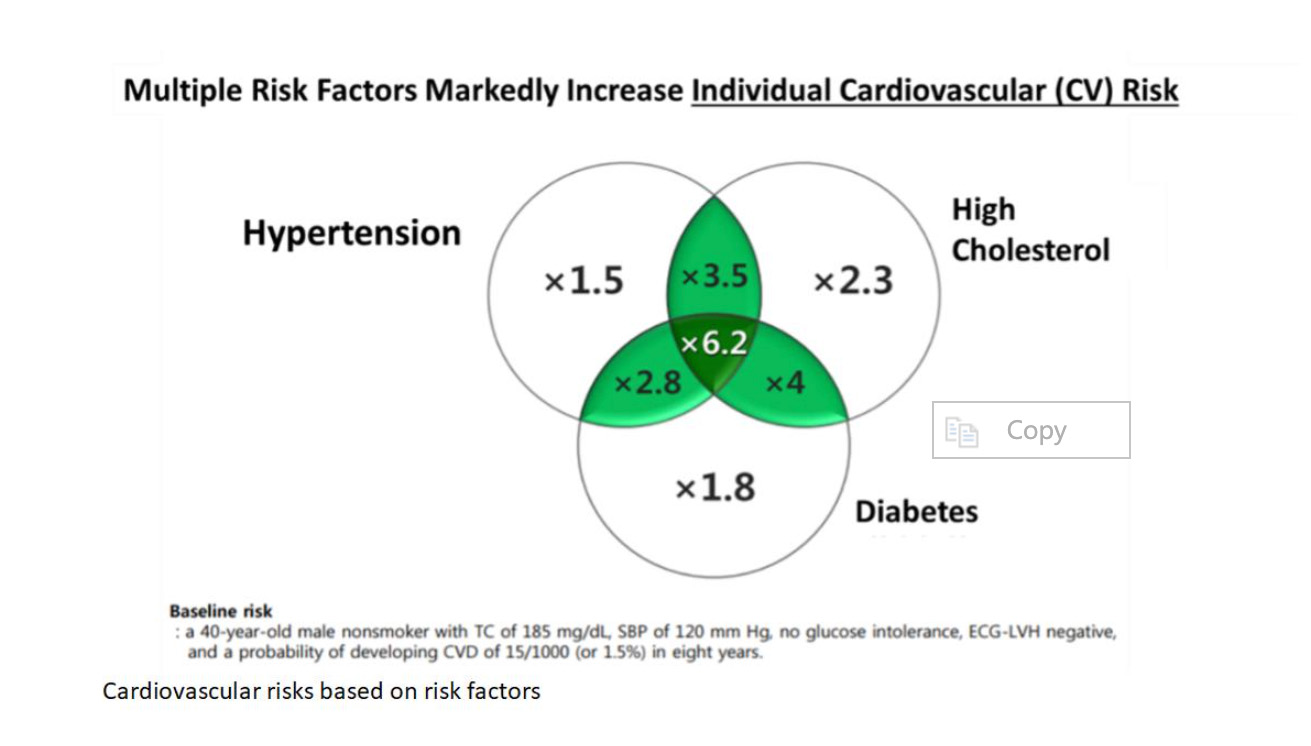
Studies showed that one in five Singaporeans have one or more cardiovascular disease (CVD) risk factors, such as high cholesterol, high blood pressure, diabetes, smoking, and physical inactivity1. Among them, high cholesterol and high blood pressure are the two fastest-growing risk factors in the last ten years. Jointly, they can increase the risk of CVD by more than three times. Dr. Brian Khoo, a cardiologist at Farrer Park Hospital, tells us more.
"Cholesterol is essential lipids (fats) needed for your body to function. However, too much cholesterol is harmful to your body, as it causes plaque build-up in your arteries and leads to various diseases," Dr. Khoo explained.
Your body needs cholesterol to build cells and make vitamins and other hormones. The liver also uses it to produce bile, which helps you digest fats into smaller fatty acids for absorption into your body.
At the same time, the liver also makes the cholesterol that your body needs. Other sources of cholesterol come from the food you consume. Commonly, these include meat, eggs, poultry, and dairy products.
While cholesterol is not naturally bad, too much of it could increase your risk of CVD.
"There are two main types of cholesterol: low-density lipoprotein (LDL), or ‘bad’ cholesterol, and high-density lipoprotein (HDL), or ‘good’ cholesterol," he said.
What gives LDL its bad name lies in what it does. It accumulates on the walls of the arteries, making them narrower. The fatty deposits form plaques that line your arteries, reducing blood supply to vital organs.
The HDL, on the other hand, carries other cholesterol (including the LDL) away from the arteries to your liver. The liver then removes this cholesterol from the body. So high levels of HDL can lower your risk for heart disease and stroke.
"High blood cholesterol occurs when your total or LDL cholesterol levels are too high, while HDL cholesterol is abnormally low. If you are diagnosed with high blood cholesterol, it means that your LDL is equal or above 4.1 millimoles per liter (mmol/L) or equal or above 160mg/dl," he added.
The National Population Health Survey 2019-2020 conducted by the Ministry of Health (MOH) showed that the prevalence of high blood cholesterol among Singaporeans has increased from 25.2% in 2010 to 39.1% in 2019-2020.
"High cholesterol is mainly caused by eating fatty food, lack of physical activity, being overweight, smoking, and drinking alcohol. While lifestyle choices may affect your cholesterol levels, others may have elevated cholesterol regardless of their lifestyle choices as high cholesterol tends to run in families," Dr. Khoo said.
High cholesterol causes inflammation and the release of certain hormones that make blood vessels tighten or "constrict," causing the arteries to become stiff and narrow. The heart then has to pump extra hard to maintain good blood flow to other body parts, resulting in higher blood pressure.
"When your blood vessels have persistently raised pressure, it means you have hypertension or high blood pressure. It is defined as a systolic blood pressure equal to or above 140 mmHg or a diastolic blood pressure equal to or above 90 mmHg," he added.
According to the National Population Health Survey, over one in three (35.5%) Singapore residents aged 18 to 74 had hypertension (or high blood pressure) during 2019-2020, up from 18.9% in 2010.
"Individuals with high cholesterol tend to have high blood pressure as both conditions are usually diagnosed together. Research showed that high blood cholesterol can lead to high blood pressure, presumably due to plaque build-up causing artery blockage," he explained.
Dr. Khoo said that despite having different conditions, they share the same risk factors: overweight, unhealthy diet, lack of physical activities, smoking, stress, and even genetics.
Both conditions affect your health by damaging your arteries, which may lead to heart attack, stroke, heart failure, kidney failure, and peripheral artery disease. The term "silent killer" applies to both conditions, as individuals tend not to be aware until it is too late.
While high cholesterol raises the risk of heart disease and stroke by 2.3 times, high blood pressure on top of high cholesterol multiplies the risks by 3.5 times.

While you cannot change your risk factors like age, gender, and genetics, there are many other ways to reduce your blood pressure and cholesterol levels.
"By implementing certain changes in your lifestyle, for example, eating a healthy diet and exercising, you can help lower both cholesterol and blood pressure," Dr. Khoo advised.
A healthy diet is rich in fruit, vegetables, whole-grains, fish, lean proteins, nuts, seeds, and vegetable oils. Limit intake of saturated fat and trans fat, for example, red meats, processed meats, and other high-salt foods, and sugary foods and drinks.
Staying active and exercising need not be a punishing high-intensity workout at the gym. Instead, any enjoyable exercise like sporting games and brisk walks in a park nearby would do just fine.
When lifestyle changes are not helping you achieve good control of your cholesterol or blood pressure, you may need to consult your doctor for medications to treat each condition specifically.
"Individuals with both high blood pressure and high cholesterol will need medications to control both conditions. To help minimize the number of tablets consumed each day, various 2-in-1 blood pressure or cholesterol-lowering medications are now available in the market," he added.
Dr. Khoo advised that cardiovascular risk factors should not be treated independently. Have a fruitful discussion with your doctor on the risks and benefits of initiating medical treatment. Remember to adhere to the treatment plan your doctor has prescribed for you. Finally, bear in mind that even though you have started medication, healthy lifestyle changes remain a must in your daily life.